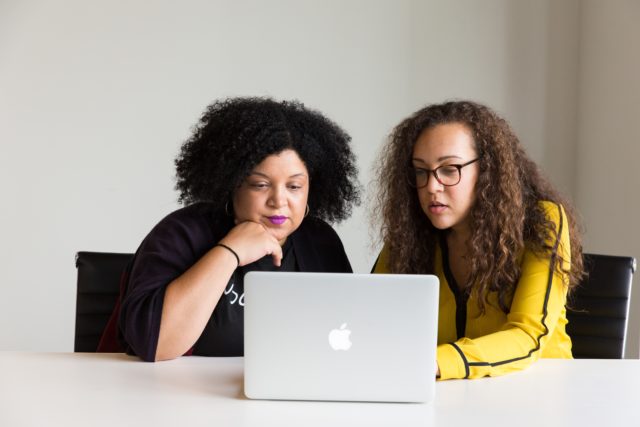A big part of conflict resolution training is knowing how to talk to those involved in a conflict. However, while communication is a cornerstone of discovering the best resolution, it’s not the only element to master. If you really want to succeed with conflict resolution, you must be as neutral and confidential as possible.
But why is that, and how can you make sure you’re following the proper procedures? Here’s everything you need to know about maintaining neutrality and confidentiality when resolving conflicts in a professional setting.

A Brief Overview of Ethics and Professionalism
Managing conflicts in the workplace (or as part of your job) is much different than doing so in a personal situation. Professionalism is crucial because you’re not just representing yourself, nor are you looking for the best resolution for your needs.

Instead, you must act as an impartial mediator to get both sides to agree to a resolution. Typically, this resolution involves compromising, but not always.
In this type of situation, professionalism means holding yourself to a higher standard. This also means looking at the situation as objectively and impartially as possible. If there is a conflict of interest (i.e., you know one of the involved parties), your professionalism is at stake, so someone else must act as the mediator.
But how do ethics come into play? Ethics is a system of principles that guide your actions and help determine the best route to a successful resolution. Typically, equity is a cornerstone of ethics. Equity means that everyone involved in the conflict gets a fair shake and has equal opportunities to come to a positive and fulfilling resolution.
For example, taking one person’s side and ignoring the other’s point of view would be seen as unethical. Since the person you’re ignoring doesn’t have the same chance as the other individual, there’s no way any resolution could be equitable or “fair.”
Not following ethical and professional guidelines could create potential problems, such as:
- Lawsuits – If someone involved in the conflict felt they were being treated unfairly, they may seek outside counsel. A lawsuit escalates the situation by bringing the court system into the mix.
- Escalated Conflict – If you’re showing favoritism or acting unethically, the person being treated unfairly may decide to escalate the situation. In some cases, that person may go up the chain of command or sabotage the workplace in retaliation.
- Unresolved Conflicts – If you’re not trying to find a compromise that satisfies both parties, the chances of future conflicts increase. Just because they’re not actively engaged in conflict right now doesn’t mean they won’t be later on.
Why Maintaining Neutrality Matters in Conflict Resolution
Whenever a conflict erupts, there are always two (or more) sides to the issue. In almost all cases, each party views the situation differently. This viewpoint may also incorporate elements and actions that exist outside of the conflict and may have contributed to the incident.
For example, one person may have been mistreated in the past, so similar encounters trigger an emotional and negative response. In other cases, the issue may be that both parties dislike each other for unknown reasons, and the conflict has been brewing for a while.
No matter the situation, though, it’s imperative for the mediator to understand what led to the incident from both sides. Neutrality is critical for conflict resolution because:
- It allows for better communication. When both parties feel like their voices are going to be heard, they’re more likely to convey more information about what happened. While you can’t always take what someone says at face value, it’s still important to create a neutral platform for their perspective. Otherwise, there’s more of an incentive to lie or omit details.
- It eliminates any potential conflicts of interest. As a mediator, you have to be as objective as possible to determine the best resolution. If you’re not neutral and favor one person over the other, it could create tension and escalate the conflict further.
- It facilitates a speedier resolution. When both parties are able to be open and honest about what happened, it’s easier to figure out a long-term solution. Essentially, neutrality makes the process more efficient.

Why Confidentiality Matters in Conflict Resolution
Even if a conflict erupts in the workplace with witnesses around, there needs to be a certain level of confidentiality surrounding the incident. Although both parties may not be able to hide their involvement, they may be able to keep specific details private.
Confidentiality matters in conflict resolution because:
- It protects everyone involved. Some conflicts could incorporate sensitive details, such as personal information or illegal activity. By conducting the resolution process in the open, it could allow for personal feelings to interfere with the process. Confidentiality ensures that everyone is treated fairly.
- It protects the business. If you’re resolving conflicts in a professional setting, the best resolution may involve legal enforcement (i.e., court orders or settlements). If details are available to anyone and everyone, that could complicate the situation and make it harder to resolve.
- It helps ensure objectivity. If the parties involved in the conflict feel like their words could lead to retaliation, they’re far less likely to open up about what happened. Confidentiality is necessary to ensure that a fair and balanced resolution can take effect. Otherwise, some details may not come to light, tainting the entire process.
Tips for Maintaining Neutrality and Confidentiality
Knowing the value of these elements is only the first step—next, you need to apply them to your conflict resolution strategy. So, with that in mind, here are some tips on how to do that:
Discuss the Dispute in a Private Location
Even if the conflict is public, the discussion about what happens next should be in private. Depending on the situation, privacy may be in the form of going into an enclosed office space, or it could be finding an empty room somewhere. For de-escalation trainees in the field (i.e., law enforcement officers), finding privacy may mean going into a car or other area where other people can’t listen in.
It’s also imperative to consider who needs to be in the room at the same time. Sometimes, communicating with both individuals may make sense. In other cases, you may need to separate them and discuss the situation individually.
Also, sometimes other representatives may need to be present. For example, a manager may need to know what’s going on so they can sign off on any resolution discussed. No matter what, though, everyone needs to understand how critical it is to maintain confidentiality about anything discussed behind closed doors.
Discourage Gossip Among Co-Workers
While you can’t always control what other people say about an incident, you still must talk to any witnesses after the fact. Gossip can be destructive and harmful to the workplace, mainly if rumors spread about the people involved in the conflict.
Overall, it’s best to have a simple conversation with everyone to discuss what happened and what’s going to happen moving forward. While you may not be able to divulge specific details of the conflict, it’s crucial to let everyone know that the situation is under control and that rumors and gossip will only make the resolution process harder.
Use NDAs When Applicable
Sometimes, conflicts involve sensitive topics or issues, making it necessary for the company to issue non-disclosure agreements (NDAs). An NDA is a standard form that forbids someone from discussing these sensitive elements with anyone else (under the risk of penalization).
NDAs may be necessary in cases where sexual harassment or racial discrimination occurred or if someone did something illegal. These documents may also be necessary if sensitive company information is part of the conflict resolution process.
Overall, NDAs can ensure confidentiality for incidents where privacy is essential. However, depending on the situation, it may not be possible to get everyone involved to sign an NDA.
Don’t Assume Anything
Maintaining neutrality means coming into a situation with an open mind and an objective sense of judgment. Even if you witnessed the conflict, you have to remove your own thoughts and assumptions from the situation. In many cases, the cause of the conflict is not immediately apparent to an outsider, so making assumptions could only hamper the resolution process.
Also, it’s important to avoid assuming anything after talking with those involved in the conflict. Taking an objective stance is professional and can ensure a smoother and more efficient resolution.
Investigate to Verify Each Side
Typically, people want to paint themselves as the victim or hero in a situation. After a conflict, it’s natural for each individual to want to blame the other (or minimize their contribution). So, you can’t just take everything at face value.
Instead, it’s imperative to investigate any claims to the best of your ability. Even if you don’t have the authority to talk to other people, you can investigate by asking questions and establishing credibility with each person. From there, it’s easier to figure out exactly what triggered the conflict and what could help resolve it.

Schedule Conflict Resolution Training For Your Team
Pollack Peacebuilding Systems can help your workplace run smoother by training staff on conflict resolution and de-escalation. Our programs are tailored to meet your specific needs, and we can adapt to all kinds of workplaces. Contact us today to schedule a training session and see what a difference PPS can make.








